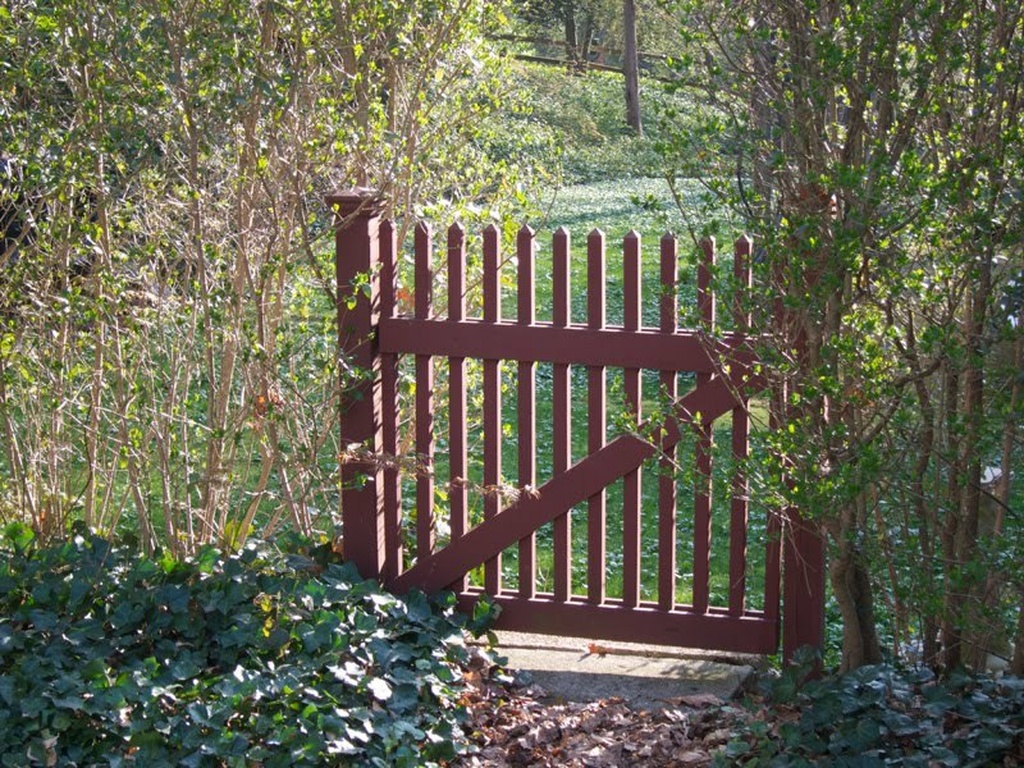
Good Fences
Homeschooling has a lot of benefits, one of our favorites being the ability to fix what was wrong in our education for our children’s. But also it has the ability to fix what we thought was right in our education—even when we don’t want it to.
- Catherine Brown
“There is a way which seemeth right unto a man,
But the end thereof are the ways of death”
Proverbs 14:12
Summer quarter in the Brown household means a change in curriculum for our little Hufflepuff. Core subjects are swapped to a maintenance cycle, and fun intensive studies are brought in to pair with the sunshine and fresh air. She was excited for Handwriting. I was excited for Poetry.
Ah, poetry: the happy marriage of cadence, eloquence and poignancy. I still remember and adore a plethora of the poems I was exposed to during my senior year. Indeed, they work their way into my life upon myriad and sundry occasions—musing on the Prufrockian avarices of the day, charging alongside the Light Brigade as I plow enthusiastically into the laundry basket, calling out to Mr. Brown “O Captain, my Captain!” (though I really ought to stop that one, as poor Captain is dead, and I don’t know that Mr. Brown would appreciate the association with a corpse). But the ultimate in my estimation, my greatest lingering poetic joy and muse, was Robert Frost’s Mending Wall. The language, the imagery, the seeming yearning for neighborly communion and the quiet, reserved yet impish belligerence that it wasn’t returned…well, they shaped me for many years. Many, many years.
And then I grew up.
I can remember thinking back upon the poem during my first reading of Rushdoony’s Institutes of Biblical Law and the discussions on property and boundary stones. Indeed, it was the first thing my mind went to: stones on property equaled Mending Wall. It was all I knew. It was all I cared to know. And it was hard to focus on Rushdoony’s point, as my memory kept bringing forward various lines and snippets to “contribute” to the lesson. But the more I read, the more the gloss started to come off. And I knew I’d never get it back.
It was akin to the death of an old friend from childhood, the kind you hadn’t seen in ages and yet you still mourned deeply—not for the friend itself (though that sounds callous), but that something so lingering in your esteem, something that molded your character so early, something so fondly regarded, was now truly nothing more than a memory. I’ll admit, I intentionally avoided going back to re-read the poem with my new understanding, both then and for years afterward, even when I re-read Rushdoony’s Institutes and had the pleasure of being smacked in the face all over again. Harder. But I was stubborn. I could survive this, keep burying my head in the sand. I could. I would.
And then God, in His mercy, made me a homeschooling mother.
It’s not one of those understandings I’ve ever heard anyone give voice to, though maybe that’s due less to their tongues and more to my ears. Homeschooling has a lot of benefits, one of our favorites being the ability to fix what was wrong in our education for our children’s. But this week, I also learned it has the ability to fix what we thought was right in our education—even when we don’t want it to. I was able (through necessity first, but then graciously through broken-to-harness’dness) to work my way Biblically through my fallen friend, guiding my daughter through the guise and the way that seemed right to a man, but in the end led to his death. We were able to discuss property boundaries, the basic concept of ownership and possession and how they reflected upon the dominion mandate and the dignity of man. We contributed another chapter to the lifelong discussion of how the world would try to overthrow God’s true, good, holy, fitting, resonating and beautiful Law through clever deceits and manipulations, how it would seek to feed the gremlin of our sin-nature, growing our desire to be our own gods by encouraging us to determine right and wrong for ourselves. We had another chance to reaffirm our role as defenders of our neighbors’ property, that maintaining God-provisioned and God-ordained fences is what makes us godly neighbors.
And in a way, in doing this, it brought my old friend back to me. Not in the glossy, naïve ways it had when I thought like a child, reasoned like a child, and acted like a child…but in a new way, joining my child in the endeavor to put our childish ways behind us. And so with new love, deeper than an adolescent affection, more rooted and lasting than my springly-green devotion, I echo back to Frost:
I will not go behind my Father’s saying,
And I like being taught of it so well,
I say again, “Good fences make good neighbors.”
- Catherine Brown
Catherine Brown is the courageous homeschooling housemum of a Hufflepuff and a Took. She and her husband Eric are spreading deep roots in West Virginia, confounding their Arminian neighbors with earnest and eager studies in Biblical Law, church history, presuppositional apologetics and pretty much any doctrinally-sound book they can get their hands on.